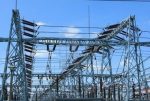Nigeria is seeking $5.2 billion from the World Bank to expand electricity generation and help the economy recover from its first contraction in 25 years.
The bank’s private-sector lending arm, the International Finance Corporation, may invest about $1.3 billion in power projects and electricity distribution companies. Its political-risk insurer, the Multilateral Investment Guarantee Agency, could provide equity and debt of $1.4 billion for gas and solar power programs, according to Power, Works and Housing Minister Babatunde Fashola.
That’s in addition to loans of $2.5 billion Nigeria is seeking from the lender to help improve the distribution of power, expand transmission-capacity and increase access to electricity in rural areas, Fashola, 53, said.
“Disbursements with the World Bank are being worked out to start from around June, July this year,” Fashola said in an interview from his office in the capital, Abuja on May 4. Nigeria is asking the lender to bring forward the timetables “because next year we want to see results,” he said.
Africa’s most populous nation produces about 4,000 megawatts of power compared with a average peak generation of about 35,000 megawatts in South Africa, with a population that’s less than a third of the size of Nigeria’s 180 million people. The lack of supply increases production costs for many businesses forced to provide their own electricity, mostly using diesel-run generators. The Nigerian economy shrank 1.5 percent last year, the first full-year contraction since 1991 because of a fall in oil prices and production and dollar shortages. Gross domestic product could expand 0.8 percent this year and 1.9 percent in 2018, according to the International Monetary Fund.
Fashola, who presided over several infrastructure projects in Nigeria’s commercial hub of Lagos as its governor, was appointed last year by Buhari to boost the power industry, one of the biggest impediments to growth in the country.
Power generation and distribution companies are facing cash-flow difficulties, partly because of foreign-exchange losses, outages due to technical faults and the theft of electricity by some users, according to Fashola. In 2016, power distributors paid only 27 percent of the 331 billion naira ($1 billion) that generating companies invoiced, according to the National Bureau of Statistics.
Bloomberg










